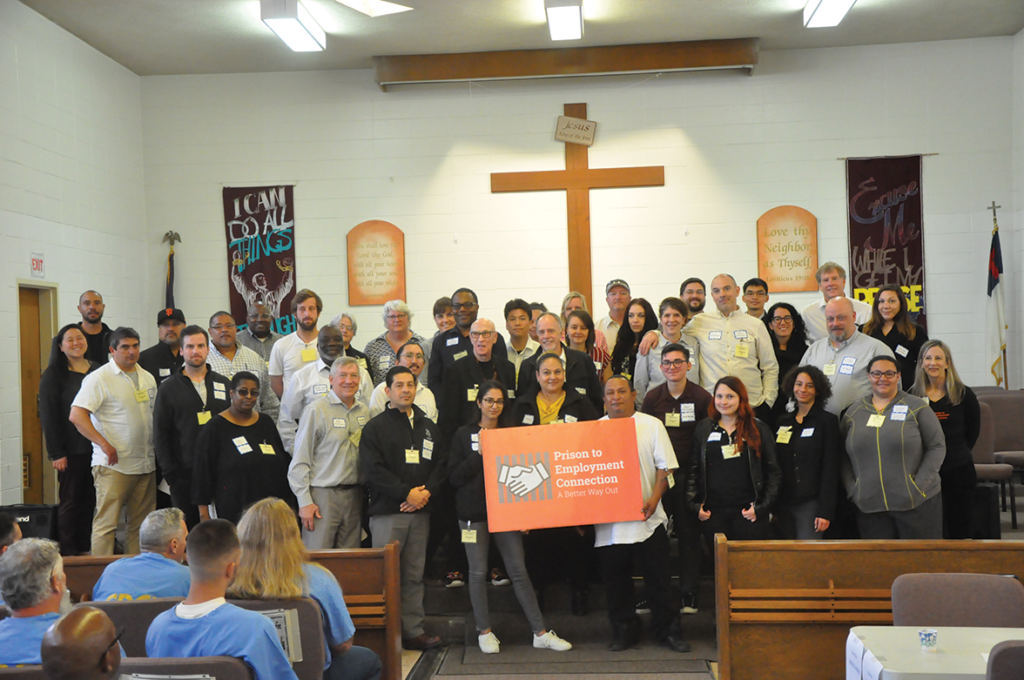Felony convictions can prevent individuals from obtaining required professional licenses, hindering their chances for success after incarceration, The Washington Post reports.
Nearly 14,000 U.S. laws and regulations can be used to restrict persons with arrest records from becoming licensed in certain fields. These rules are scattered across federal, state and regulatory codes, and can vary from occupation to occupation or from state to state, according to the article.
“The focus should be on rehabilitation and putting people back out in the community so they can participate and be productive and thrive in their communities,” Caitlin Dawkins told the Post. Dawkins is a director for the National Reentry Resource Center at the American Institutes for Research.
Approximately 20% of people in the country need an occupational license to perform their job. Licensing requirements are earned only after completing designated amounts of education and training in their respective fields. Lawyers, health professionals, firefighters, public accountants, teachers, electricians, social workers, real estate agents, security guards, and professional drivers are examples of occupations that require licensing.
Many formerly incarcerated individuals make the effort to complete training programs and submit license applications without understanding that they can be rejected because of their criminal record. In addition, licensing boards in 31 states are allowed to deny applicants based on their character alone, for some occupations, according to a 2020 study by the Institute for Justice cited in the article. This could include minor infractions that are years or decades old.
Only 21 states allow those with criminal convictions to inquire beforehand as to whether their records will disqualify them from obtaining an occupational license, the Post notes.
Advocates point out that such barriers to getting occupational licenses create problems by unnecessarily keeping people out of the productive labor force, which makes it harder for them to rebuild their lives and stay out of prison.
Some states permit prison work crews to fight fires, but will not license those who have been incarcerated to work as firefighters in local fire departments once released. Incarcerated people can be landscapers for cities while in prison, yet often cannot work for such governments with a criminal record, according to the article.
The U.S. Department of Education recognizes that people who pursue higher education while incarcerated are less likely to recidivate. It began a major expansion of the Pell Grant program in July 2023 for prison residents. Evidence also shows a correlation among those who achieve higher education and subsequent employment stability.
Forty states have eased the laws that limit people with criminal records from obtaining employment licenses. However, there are still roadblocks and limitations that continue to cause negative consequences, reported the Post.
Jesse Wiese served seven years in an Iowa facility and earned an undergraduate degree. Once released, he earned a law degree at the Regent University School of Law in Virginia. After passing the bar, he was required to take a character and fitness screening because of his criminal conviction. “It was like a mini trial,” Wiese told the Post.
Even though he received a positive recommendation, the Virginia Board of Bar Examiners unanimously denied the recommendation because of his criminal history. He tried again two years later but the same thing occurred.
“They said it may be impossible to prove rehabilitation,” Wiese recalled. Virginia’s Supreme Court also ruled against him in an appeal.
In an 1898 decision, the U.S. Supreme Court affirmed the right to discriminate against those with criminal records, writing in its decision that “character is as important a qualification as knowledge.”
Wiese said that in his younger days, he believed that a person could overcome anything and could earn a fresh start, even after committing a crime. As a formerly incarcerated person, he no longer feels that way. “This is called the second prison. Literally, you walk out of one and you walk into another one,” he said.
Wiese applied for a state license to practice law a third time, after having to retake the bar. However, the state licensing board again denied him. As before, he appealed the denial to the Virginia Supreme Court. This time, the court decided in his favor. After 10 years of struggling with the system, he finally received his license to practice law.
Wiese is currently the vice president for research and innovation at Prison Fellowship, an organization that assists with reentry for individuals and their families affected by incarceration.
Time and time again, he saw the program’s participants stop chasing their dreams, confounded by barriers to stable employment. He said the message they received was, “Don’t take the initiative.”
“It really limits people’s ability to make a difference and to contribute,” Wiese said.
